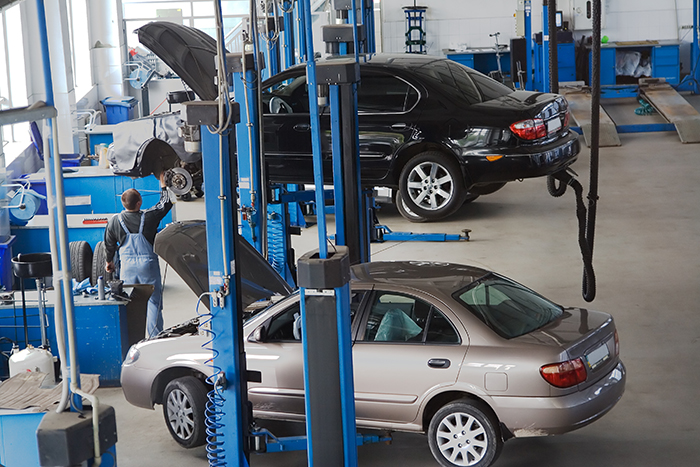That check engine light just came on—and now you’re justifiably concerned. Could it be something minor? Or might it signal a costly repair? Without proper diagnosis, there’s simply no way to know. That’s where we come in. At Scott Clark Nissan Service Center, we focus on accurate, fast, factory-grade diagnostics exclusively for Nissans. If you’re driving around Charlotte and that warning light appears—don’t guess. Let us provide real answers, quickly.

What Does the Check Engine Light Really Mean for Your Nissan?
This small dashboard indicator carries significant weight. It’s your vehicle’s way of alerting you when something—from minor to major—isn’t functioning properly. Many drivers discover it’s something as simple as a loose gas cap. But it might also indicate a failing catalytic converter or engine misfire. This indicator (also called Malfunction Indicator Lamp or MIL) monitors everything from emissions to ignition timing. In Nissans specifically, it’s quite sensitive—which helps catch problems early before they escalate.
Flashing vs. Steady Check Engine Light: What’s the Difference?
A steady light typically indicates a non-urgent issue. You should still get it checked soon to prevent worsening conditions or damage to related systems. But a flashing light? That’s your Nissan urgently warning you about potential immediate failure—often indicating a misfire or serious emissions problem. In this case, pull over safely, turn off your engine, and contact a professional right away. Continuing to drive with a flashing indicator can permanently damage your catalytic converter or other expensive components.
Why a Free Code Reading Isn’t Enough (The Dealership Difference)
Places like AutoZone or O’Reilly often provide complimentary code scans. Sounds helpful—until you understand what you’re actually receiving. These basic scanners only retrieve general fault codes without showing you complete diagnostic information. They can’t interpret manufacturer-specific error codes, test multiple modules, or verify sensor data. And they certainly can’t guide you through comprehensive diagnostic logic that only factory-level equipment can deliver.
We use specialized Nissan diagnostic software and hardware—tools developed by the same engineers who built your vehicle. This approach eliminates guesswork, prevents unnecessary part replacements, and saves valuable time.
Our Advanced Nissan Diagnostic Process in Charlotte
Here’s how we properly diagnose your vehicle at Scott Clark Nissan:
| Step | Description |
|---|---|
| 1. Full System Scan | We use Nissan’s factory-grade scan tools to retrieve and interpret error codes across all control modules—not just the engine. |
| 2. Live Sensor Readings | We examine real-time engine data to confirm whether a sensor or system is truly malfunctioning, not just reporting a false flag. |
| 3. Physical Inspection | When needed, we go beyond software to visually inspect wiring, hoses, and connectors that might be causing electrical interference or vacuum leaks. |
| 4. Technician Diagnosis | Our certified Nissan technicians review the data, isolate the issue, and recommend the best course of action—whether it’s a repair, reset, or part replacement. |
Common Causes for Check Engine Lights in Popular Nissan Models
Here in Charlotte, we’ve seen numerous patterns emerge. In Altimas, misfires or faulty catalytic converters frequently trigger warnings. Rogues commonly show CEL notifications due to oxygen sensor issues or EVAP system leaks. Sentras often develop camshaft or crankshaft sensor problems, particularly in higher-mileage vehicles. These patterns highlight why having your Nissan diagnosed by specialists who truly know these vehicles makes such a difference—just like we do.
Is It Safe to Drive with the Check Engine Light On?
It depends on specific circumstances. When your light remains steady and your vehicle runs normally, you’re likely not facing immediate danger—but don’t ignore it. Schedule a diagnosis promptly. However, if you notice a flashing light, rough performance, smoke, unusual smells, or poor acceleration, safely pull over and call us right away. Continuing to drive under these conditions could lead to severe damage. Your safety comes first. Always.
FAQ: Nissan Check Engine Light Diagnosis
Q: What does it mean when my Nissan check engine light is on?
A: It indicates your car’s computer has detected a fault—ranging from minor emissions issues to serious engine or transmission problems. A proper diagnostic scan remains the only reliable way to determine what’s actually happening.
Q: Can I trust a free scan from a parts store?
A: Not completely. Free scans provide a code—but lack comprehensive diagnosis. They won’t deliver the depth, accuracy, or context our dealership diagnostic systems offer. They’re fine for a general indication but aren’t reliable for making repair decisions.
Q: How much does it cost to get a diagnostic at Scott Clark Nissan?
A: Costs vary based on your vehicle’s specific issue and current service rates, but we maintain transparent pricing and often provide diagnostic specials. For the most accurate and up-to-date pricing, contact our service team directly or check our service specials page.
Q: Is it safe to drive with a steady check engine light?
A: In most situations, yes—but only temporarily. Even seemingly minor issues can develop into bigger problems when ignored. Schedule a diagnostic scan soon to avoid potential complications.
Q: What are some common Nissan-specific check engine issues?
A: EVAP leaks, oxygen sensor failures, ignition coil problems, and catalytic converter issues occur frequently. Our specialized tools and expertise allow us to pinpoint exact causes efficiently.
For a deeper dive into what your vehicle’s dashboard lights mean, check out this resource from the National Highway Traffic Safety Administration (NHTSA).
Schedule Your Professional Diagnostic Scan Today
Don’t wait. If your check engine light is on, trust Charlotte’s Nissan experts to find out why and fix it right—the first time.
